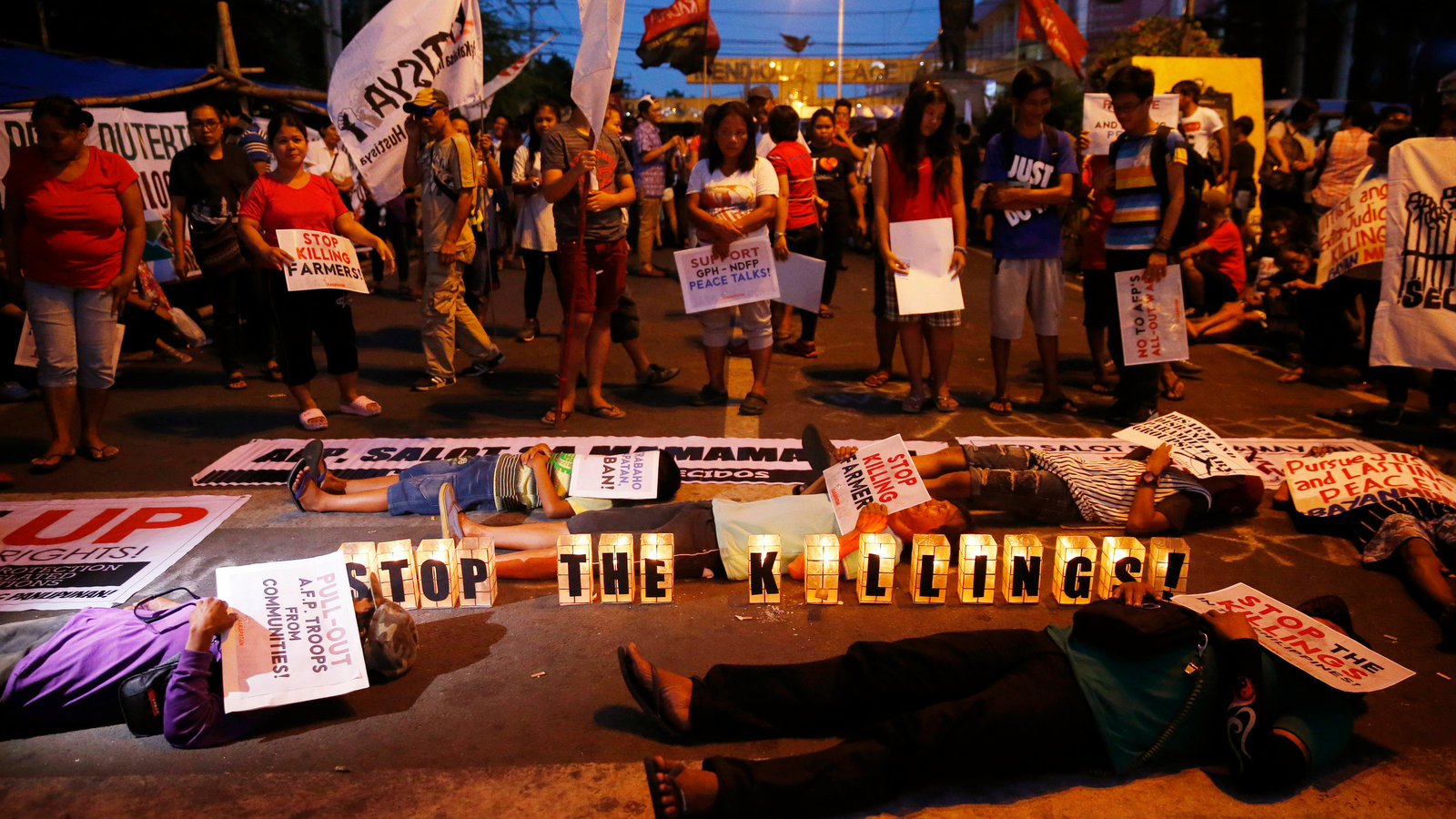The extrajudicial killings in the Philippines and the failure of naming and shaming Duterte’s regime in the Philippines continues to be characterised by violence, repression and violation of human rights. Duterte’s mission has been clear from the beginning of his presidential term: fighting crime and stopping drug use. However, the means that he used and continues to use to attain this goal are extremely repressive and violent. His enemies are suspected drug dealers and users that are included in his “watch list”, but he violently oppresses those condemning his actions, including human rights defenders, community people, environmental activists, left-wing political activists, Indigenous people’s leaders, lawyers and journalists. Human rights groups claim that the number of victims is between 27,000 and 30,000, including vigilante-style killings as well. During the COVID-19 pandemic human rights violations increased and free, independent press was further eroded: ABS-CBN, the largest television network in the country, was shut down. It is necessary to hold Duterte accountable for all the extrajudicial killings and the numerous human rights violations happening in the Philippines. However, the strategies used so far proved to be ineffective. Naming and shaming, which is one of the most popular tactics of human right advocacy, is one of the strategies which turned out to be fruitless in the Philippines. This practice consists of collection and disclosure of evidence of human rights infringements by human rights organisations, the media and normally Western states. Naming-shaming aims at turning the attention on the perpetrators’ actions and expressing international disapproval in order to push them to comply with the human rights norms. The violators of human rights will often react by changing their behaviour and adhering to international norms, so as to preserve power, political allies, economic partners, and international and domestic legitimacy. Thus, the whole success of naming and shaming relies on the idea that governments value their reputation highly and would therefore improve their behaviour when shamed by the international community. However, Duterte’s open rejection of human rights make him shameless and his great popularity among the Filipino people contributes to make him immune to international pressure and the reputational costs of naming and shaming. Duterte was always clear and open about his intentions and clearly expressed his indifference towards human rights. After his election he compared himself to Hitler, declaring that he would be “happy to slaughter 3 million drug addicts”. When his actions are shamed, Duterte addresses such criticism directly, expressing great carelessness towards it and often insulting prominent figures.
The failure of naming and shaming also depends on the fact that it is conveniently interpreted through the lens of colonialism, identifying it as a Western tool to impose power and values over non-Western countries. This often triggers national sentiments and strengthens legitimisation. Indeed, when his actions were condemned by President Obama in 2016, Duterte replied claiming that “we have long ceased to be a colony” and that he is “only answerable to the Filipino people who elected me president.” In the same way, when he was faced with a preliminary examination by the International Criminal Court and threats of imprisonment, he declared that he is ready to go to prison for the rest of his life if necessary. In addition, he stated “I don’t care if you call me a killer” and “I don’t care if I lose my job, the presidency, or if I get killed. I promised the Filipino people during the campaign and I will do it whether you like it or not. Sorry but I don’t care about your opinion about me”. He pictures himself as the hero ready to do anything to fight criminality and serve the Filipino people, even if that means his reputation will be compromised and his freedom and life would be at risk. Duterte’s regime is a good example of the threat that populism is posing to the whole human rights architecture. Populist governments such as Duterte’s are characterized by anti-elitism: they define themselves as “the real people” and aim at fighting the elite, labelling whoever opposes them as the enemy of the people. The enemies to fight in the Philippines are drug dealers and users, criminals, but also communist rebels and journalists. Duterte attacked the media many times, defining reporters as “spies” and threatening them. Moreover, Duterte has also been conducting smear campaigns to undermine the legitimacy of human rights activism. For instance, he filed a petition in court presenting a list of more than 600 suspected communist guerrillas. Victoria Tauli-Corpuz, the UN special rapporteur on the rights of indigenous people who criticised the government for the killings of indigenous people, was included in the list as a senior member of the Maoist rebel group. Human rights violations become more and more frequent in the Philippines and the human rights movement is increasingly failing to find a successful way to address them. It is necessary to change strategies in order to face the challenges and threats of populism. To be successful, the human rights movement also needs to focus on social rights and rights of those who suffer from economic change, the same people that support populism out of resentment.

